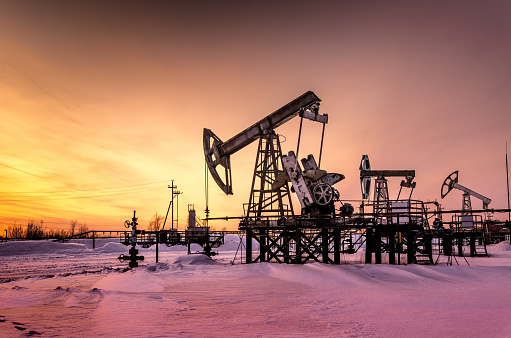
Data privacy: how the year has started and what to expect next
March 1, 2022
The Future Lawyer Weekly Update – w/c 28th February
March 3, 2022Article by Julia Bąk.
The already strained global oil and gas market is sent spiralling again as Russia wages barbaric war against Ukraine. The cost of an oil barrel soared above $105, after exceeding the exorbitant price of 100$ earlier this week, amidst the global conflict-induced anxiety.
What contributes to increasing prices?
The prices on the global oil and gas market have been gradually reaching new heights since the beginning of the pandemic, showing the signs of an inevitable increase even before the COVID-19 started. The highly anticipated shift towards green energy caused a sharp decline in expansion and exploration investments amongst non-renewable energy giants. As a result, we have seen a global investment in this sector cut in half from its 2014 $800bn levels. The natural decline in output which ensued, coupled with the majority of OPEC producers not being able to meet their production targets since July 2021 resulted in countries depleting their energy reserves. Currently, as the demand for energy rises to the pre-pandemic levels, we are inevitably facing energy shortages, which in turn cause skyrocketing prices.
The already-tight situation in the global energy market is now exacerbated by the violent conflict between Russia and Ukraine, started arbitrarily by Putin. Russia is the third biggest supplier of oil in the world and provides 40% of all European Union oil, making the continent highly dependent on its consistent supply. On the 22nd of February Germany, which is strongly dependent on Russia for its energy, halted the controversial NordStream 2 project. After Russia attacked Ukraine on Thursday 24th February, further sanctions are likely to follow from other European countries, as well as the United States. The heated geopolitical situation made the already elevated prices of a barrel of oil jump $10 over the recent week only.
What now?
Although the military operations are unlikely to directly affect the supply of gas that flows through Ukrainian territory, the energy prices are expected to rise even higher as a result of possible Russian economic retaliation. Faced with sanctions from other geopolitical powers, Putin is likely to use high oil and gas prices as a weapon, limiting its supply for European countries (which, according to Ursula von der Leyen, he has already been doing for the past couple of months). After a prolonged period of elevated energy prices, Russia has accumulated high reserves of capital, which would cushion it from the potential lack of funds from the West. This means that an energy shock from Putin is highly likely.
If the worst scenario materialises, and Russia cuts its energy supply for the EU, it will first affect the countries which rely on its supply the most. Those include Slovakia, Austria and parts of Italy, but also Germany which due to its decision to retreat from nuclear energy, is now highly reliant on imported natural sources of energy. The energy shortage caused by Russian absolute withdrawal would need to be recompensed with imported Liquified Natural Gas from countries such as the United States, Qatar, Egypt, and Azerbaijan. Those imports, bringing additional costs, coupled with depleted national energy stocks, would mean another fundamental increase in energy prices all over the continent.
Although the UK imports only 5% of its gas from Russia, the ripple effect caused by the rising energy prices in the rest of Europe would affect it, leaving the country in potentially worse condition than its continental counterparts. One of the reasons for that is the UK’s recent departure from the European Union. If the EU implements measures focused on swift imports of LNG, the UK which is now outside the alliance would be largely side-tracked, facing exponential costs connected to increased demand and scarce supply. On top of that, the UK has very limited energy storage potential, forcing it to import all of its energy “on the go” and pay the required price. This will inevitably contribute to the ongoing standard of living crisis, caused by inflation, Brexit and the post-pandemic reality.
In the light of the recent events, Europe is facing a deep political and economic crisis. The current fear of increased energy prices is a direct outcome of European dependency on Russia in the oil and gas sector, and the lack of diversification of its energy providers. The post-pandemic recovery which only now began to gain pace will be violently halted, and any further military aggression towards Ukraine will only add the economic pressure to already strained communities around Europe. The economic threat, however great, does not amount to the sheer terror of war tormenting Ukraine, tearing the current European peace and stability apart. In the war when there will be no winners, we may yet be faced with the enormous scale on which we will all lose.





